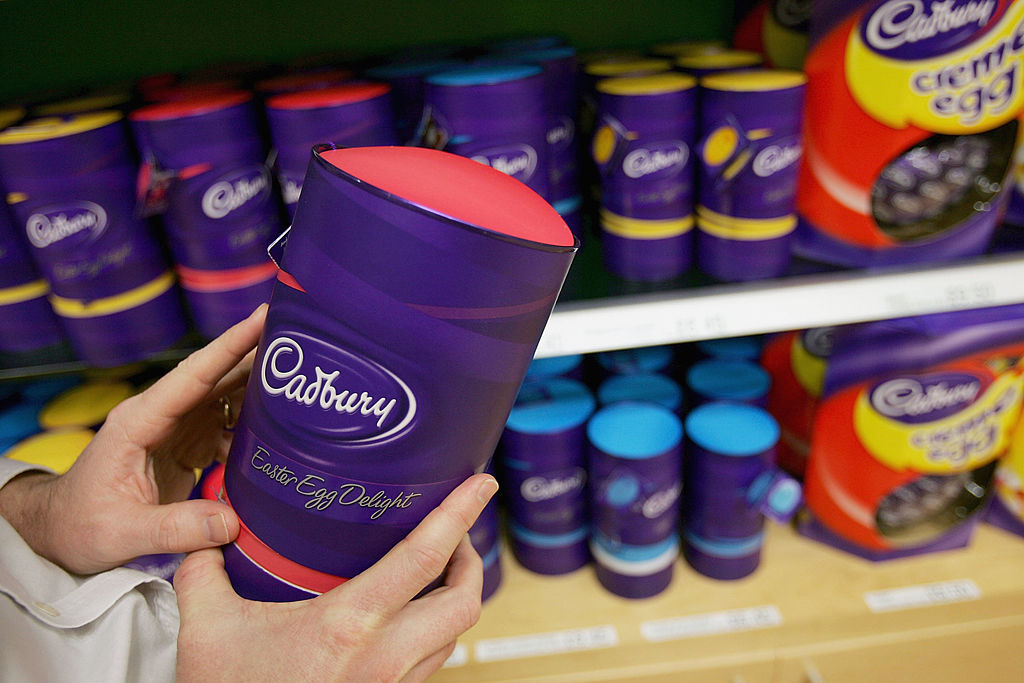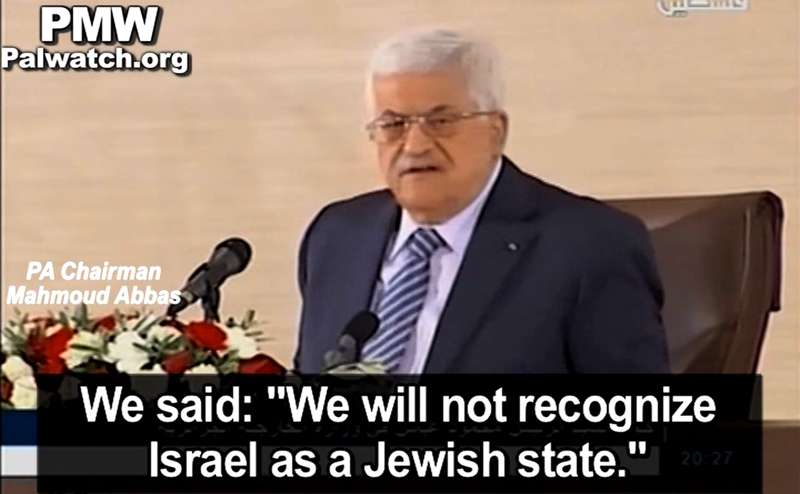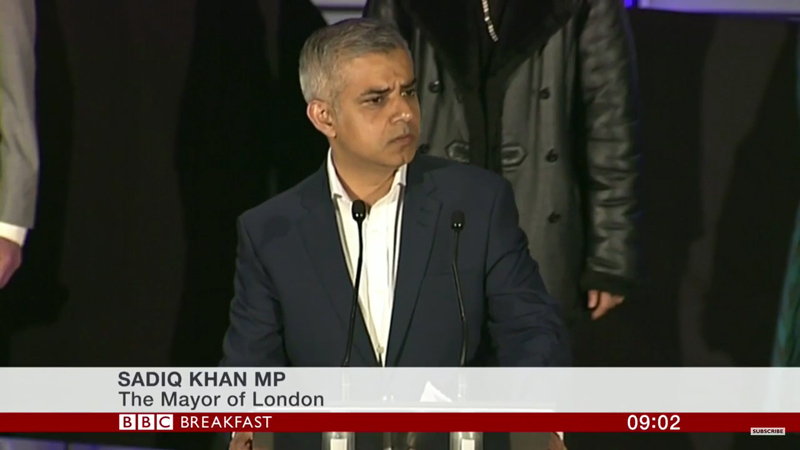
- Some forms of “honor based” abuse, such as “breast ironing,” often go undetected because teachers are unaware that it exists. Helen Porter said: “Breast ironing has been carried out for many generations and is usually performed by mothers who wish to prevent their daughters from being sexually attractive to men in a bid to protect them from child marriage and pregnancy, sexual harassment, rape and the spread of HIV… In the UK, girls in London, Leicester and Birmingham are most at risk.”
- The Charity Commission asked Islamic Relief to explain why it invited a hardline Muslim preacher to star in a fundraising tour of Britain. Yasir Qadhi, a Saudi-educated American academic, has been recorded telling students that killing homosexuals and stoning adulterers was part of Islam. Qadhi, who featured in an eight-city tour, described Islamic punishments such as cutting off the hands of thieves as “very beneficial to society.” The commission also questioned two other charities, Muslim Aid and Read Foundation, about their sponsorship of a speaking tour by Qadhi in 2015
- Sainsbury’s and Asda, two of Britain’s largest supermarket chains, refused to sell Easter eggs that tell the story of Christianity. Both chains, however, sold eggs that are not specifically Christian, including a halal version made by the Belgian firm Guylian. Stephen Green, of the lobby group Christian Voice, said: “You are whitewashing the Christian message out of Christian holidays. It’s difficult to find any explicitly Christian products, like Christmas cards, in supermarkets.”
- “It’s all right for the judge respecting the human rights of the prisoner, but what about the human rights of the prison staff he was threatening to behead?” — Philip Davies, a Tory MP for Shipley.
April 1. The British Home office stripped Sufiyan Mustafa, 22, of his UK passport after he traveled to Syria to fight with jihadists. Mustafa is the youngest son of the cleric Abu Hamza, who was sentenced to life in prison in the United States after being convicted of terrorism charges. Mustafa complained that he is now stateless and stranded in Syria:
“Britain is the place where I was born and lived. I have never been a threat to national security in Britain and will not commit aggression on its population because our religion does not allow attacks on unarmed innocents.”
April 1. Frankland Prison in County Durham became the first of its kind to open “a prison within a prison” to isolate Islamic extremists. Convicted terrorists are to be moved to a “jihadist prison block” to reduce the risk of other inmates being radicalized. A government report recommended that the “most subversive extremist prisoners” should be jailed separately to tackle the problem of jihadists radicalizing their fellow inmates.
April 5. A BBC investigation found that online services in Britain are charging divorced Muslim women thousands of pounds to take part in “halala” Islamic marriages. Halala involves the woman marrying a stranger, consummating the marriage and then getting a divorce, after which she is able to remarry her first husband. Some Muslims believe that halala is the only way a couple who have been divorced, and wish to reconcile, can remarry. The BBC reported that women who seek halala services are at risk of being financially exploited, blackmailed and even sexually abused. One man, advertising halala services on Facebook, told an undercover BBC reporter posing as a divorced Muslim woman that she would need to pay £2,500 ($3,250) and have sex with him in order for the marriage to be “complete” — at which point he would divorce her. The man also said he had several other men working with him, one who he claims refused to issue a woman a divorce after a halala service was complete.
April 5. The Salafi Independent School, an Islamic private school in Small Heath, was found to have placed an advertisement for a male-only science teacher. Although the advertisement, which breached the Equalities Act, was retracted, the headmaster claimed that the role must be occupied by a male teacher because of “religious observance reasons.” The decision prompted calls for the school to be investigated, amid fears it promotes “gender-based discrimination” and threatens to undermine “British values.”
April 6. Ummariyat Mirza, a 21-year-old from Birmingham, was charged with planning to carry out a jihadist attack with a knife. He was also charged with possessing a bomb-making guide, the Anarchist Cookbook, and an extremist document called the Mujahideen Poisons Handbook. Police also charged Zainub Mirza, a 23-year-old from Bordesley Green, Birmingham, with sending Islamic State propaganda videos and executions to others to encourage jihadist attacks.
April 7. The Food Standards Agency launched an investigation into the Malik Food Group, one of Britain’s largest halal slaughterhouses, over allegations of animal cruelty after an undercover video showed a slaughterman repeatedly sawing at the necks of sheep with a knife as they passed down a conveyor belt. The animals appeared not to have been killed instantly and some were seen heaving and jumping as they went down the line. More than 100 million animals are killed in the UK every year using the halal method, which forbids stunning animals prior to having their throats cut. The filming was carried out by the pressure group Animal Aid. Its spokesman Luke Steele said:
“Our investigation has uncovered barbaric and deliberate cruelty being inflicted on animals, in horrific scenes unlike any we have ever seen before. There is no doubt that law breaking continues to be an inherent problem in abattoirs.”
April 9. The Brexit pressure group Leave Means Leave called on the British government to adopt a five-year freeze on unskilled migrants and impose a 50,000-a-year cap on all new arrivals. The group, backed by former Cabinet ministers as well as 15 Tory MPs, says that Brexit provides a “golden opportunity” to stem immigration. The group is especially concerned about unskilled migrants, who are believed to make up some 80% of newcomers to the EU. Former Conservative cabinet minister, Owen Paterson MP, said:
“Mass migration at its current level has fostered resentment, depressed wages and placed an excessive burden on our public services. Once we have left the EU, the government must enact a new bespoke immigration policy — like a British Working Visa System — to bring immigration levels down to the tens of thousands.”
April 10. Walsall Council backed out of a pilot project to introduce voter identification measures at elections amid concerns over how staff would handle Muslim women wearing veils. Conservative leader Mike Bird said the idea was “more trouble than its worth” and may lead to “confrontation” at polling stations. The government is planning to run the pilot schemes at local elections in 2018. It would see participating councils request identification from voters at polling stations to crack down on electoral fraud.
April 10. Two Birmingham teachers at center of Trojan Horse affair — an alleged plot to introduce conservative Islamic ideology into several Birmingham state schools — applied to have disciplinary proceedings against them thrown out. A lawyer representing Hardeep Saini, the former deputy head of Golden Hillock School and Monzoor Hussain, the former principal of Park View School, said the case against his clients is prejudiced. The teachers appeared with three others before a disciplinary panel of the National College for Teaching and Leadership in Coventry.
April 10. Azad Ali, an Islamist who has said that he supports killing British soldiers, was named a director of Muslim Engagement and Development (Mend), a controversial Muslim pressure group which advises the British government. Ali recently said that the jihadist attack at Westminster on March 22, 2017 was not an act of terrorism.
April 11. The Association of Teachers and Lecturers, a teachers’ union, called for more information and training for school staff on how to spot the signs of “honor-based abuse.” Some forms of abuse, such as “breast ironing,” often go undetected because teachers are unaware that it exists. Helen Porter, who proposed the motion, said:
“Breast ironing or breast flattening, is the pummeling or pounding of a pubescent girl’s breasts with hard or heated objects in an attempt to stop them developing. It often lasts for 20 minutes at a time and may be repeated daily for up to 10 months. To state the obvious it is extremely painful and can contribute to breast infections, cysts, cancer, depression and complications in breast feeding.
“Breast ironing has been carried out for many generations and is usually performed by mothers who wish to prevent their daughters from being sexually attractive to men in a bid to protect them from child marriage and pregnancy, sexual harassment, rape and the spread of HIV. It is practiced in Cameroon, countries of western central Africa, Kenya and Zimbabwe. In the UK, girls in London, Leicester and Birmingham are most at risk.”
April 11. The Charity Commission, which regulates charities in England and Wales, asked Islamic Relief to explain why it invited a hardline Muslim preacher to star in a fundraising tour of Britain. Yasir Qadhi, a Saudi-educated American academic, has been recorded telling students that killing homosexuals and stoning adulterers was part of Islam. Qadhi, who featured in an eight-city tour, described Islamic punishments such as cutting off the hands of thieves as “very beneficial to society.” The commission also questioned two other charities, Muslim Aid and Read Foundation, about their sponsorship of a speaking tour by Qadhi in 2015.
April 13. Twenty nine people, facing more than 170 charges relating to the sexual exploitation of 18 children, appeared at Huddersfield Magistrates Court. The 27 men and two women were charged with offenses including rape, trafficking, sexual activity with a child, child neglect, child abduction, supplying drugs and making of indecent images of children.
April 14. Sainsbury’s and Asda, two of Britain’s largest supermarket chains, refused to sell Easter eggs that tell the story of Christianity. Both chains, however, sold eggs that are not specifically Christian, including a halal version made by the Belgian firm Guylian. The Real Easter Egg range, which claims to be the only one that names Jesus on the box, includes a 24-page story-activity book explaining the death and resurrection of Christ. It says that “eggs are a symbol of hope and new life.” Meaningful Chocolate boss David Marshall said Sainsbury’s and Asda appeared to be “not very comfortable, for some reason, with stocking Easter eggs for the Christian community.” Stephen Green, of the lobby group Christian Voice, said: “You are whitewashing the Christian message out of Christian holidays. It’s difficult to find any explicitly Christian products, like Christmas cards, in supermarkets.”

Sainsbury’s and Asda, two of Britain’s largest supermarket chains, refused to sell Easter eggs that tell the story of Christianity. (Photo [illustrative] by Graeme Robertson/Getty Images)
|
April 15. Pupils at the Kilmorie Primary School in Lewisham, London were taken on a school trip to the Lewisham Islamic Centre where they met Shakeel Begg, an imam whom the High Court recently described as an “extremist” who “promotes and encourages religious violence.” The trip by state school students, aged eight and nine, to meet Begg, the imam at the mosque attended by Michael Adebolajo and Michael Adebowale, the killers of Fusilier Lee Rigby in Woolwich, provoked widespread outrage. Mr. Justice Haddon-Cave warned that Begg’s role as imam put him in a position to “plant the seed of Islamic extremism in a young mind.” Begg praised the children for their desire to learn about Islam.
April 22. Mohammed Aslam, an independent candidate for mayor of Greater Manchester, caused controversy after he delivered his election manifesto completely in Urdu on the BBC. Janice Atkinson, an independent member of the European Parliament, tweeted: “If you can’t/won’t speak English you have no right to stand in elections. You cannot represent our people, culture and values. Stand down.”
April 22. Nadir Syed, a 24-year-old jihadist serving life in prison for plotting to behead someone in a jihadist attack, won a High Court case which ruled that his human rights were breached after he was placed in solitary confinement. Syed was placed in isolation at the top-security Woodhill prison after he led other Muslim inmates in chanting “Allahu Akbar” (“Allah is Greatest”), banging on cell doors and threatening to decapitate wardens. Philip Davies, a Tory MP for Shipley who sits on the Justice Select Committee, said:
“It’s all right for the judge respecting the human rights of the prisoner, but what about the human rights of the prison staff he was threatening to behead? The reason why so many people have lost faith in the justice system is because you get ridiculous decisions like that.”
April 23. Ahmadi Muslims in Cardiff said they were facing discrimination from other Muslims in the city. The Ahmadi branch of Islam believes Mohammed was not the final prophet, a view considered blasphemous to other Muslims.
April 24. The United Kingdom Independence Party (UKIP), in its new general election manifesto, pledged to ban the burka from being worn in public. Party leader Paul Nuttall said the Muslim face coverings are “a deliberate barrier to integration” and also pose a security risk. The manifesto also proposed to outlaw Sharia law and make it a legal obligation to report female genital mutilation to police.
April 25. Prime Minister Theresa May was accused of ignoring Muslim voters after she scheduled the general election in the middle of Ramadan. Muslim politicians from Labour and the Scottish National Party said they feared reduced voter turnout among Muslims on June 8, during Ramadan, which takes place between May 26 and June 24. Labour’s Yasmin Qureshi, MP for Bolton South East, said:
“It is unfortunate that Theresa May has scheduled the election to take place during the holy month of Ramadan. I know this will present challenges to Muslim voters and those who wish to campaign. At best I can only suggest that this did not even feature in her thinking, which is disappointing.”
SNP MSP Humza Yousaf, the Scottish Government Minister for Transport and the Islands added:
“I think it would be fair to say that a lot of people in the Muslim community feel that they were certainly not even factored at all into the conversation or the thinking because it will have an impact, I suspect, on turnout.”
April 26. Palestinian leaders vowed to sue the British government after it refused to apologize for the 1917 Balfour Declaration, which paved the way for the creation of Israel in 1948. The British government said:
“The Balfour Declaration is an historic statement for which HMG does not intend to apologise. We are proud of our role in creating the State of Israel. The task now is to encourage moves towards peace.”
Manuel Hassassian, the Palestinian “ambassador” to the UK, said the response meant that “the Queen and the Government of Britain will not apologize to the Palestinian people.” He said that unless the position was reversed and the UK formally recognized the state of Palestine, a lawsuit would be pursued. “This is the only condition upon which we can close this file permanently,” he said.
April 26. Damon Smith, a 20-year-old convert to Islam, appeared in court on charges that he left a bomb on a subway in London on October 20, 2016. Footage from surveillance cameras showed Smith getting onto a carriage with a backpack and then, four minutes later, getting off the train without the bag, which contained a homemade bomb and which did not go off. Jurors at the Old Baily court were told that Smith had downloaded an al-Qaeda article entitled, “Make a bomb in the kitchen of your Mom,” which contained step-by-step instructions on how to make a homemade bomb. The court also heard that Smith had a keen interest in Islam, guns, explosives and gambling, and collected pictures of extremists, including the alleged mastermind of the 2015 Paris terror attacks. Smith, who suffers from autism, admitted to making the device but claimed he only meant it as a prank.
April 26. Wealthy Pakistani asylum seekers with £250,000 ($325,000) in savings who claimed asylum in Britain before taking £40,000-a-year in benefits were each sentenced to ten months in prison. Syed Zaidi, 41, and his wife Rizwana Kamal, 40, claimed they were being persecuted at home so flew to Britain with their family asking the Home Office for food and shelter. The couple, who have three children, were given free accommodation and other welfare payments worth £150,000 over four years at taxpayers’ expense, despite having more than £250,000 saved in seven different bank accounts. They then bought two cars and moved in a Victorian terraced house in Denton, near Manchester, but were prosecuted after a whistleblower called the Home Office.
April 27. The Church of England said that British children should be required to learn about Islam. Derek Holloway of the Church of England’s education office said that Christian parents who do not want their children to learn about Islam should not be allowed to withdraw their children from religious education lessons. At present, parents can insist that their children take no part in religious education lessons and do not have to provide a reason. Holloway said that parents with “fundamentalist” Christian beliefs who did not want their children to learn about other world views risked leaving pupils with little understanding of Islam and without the skills to live in a modern and diverse Britain. Holloway did not say whether Muslim children should to be required to learn about Christianity and Judaism.
April 27. Khalid Mohamed Omar Ali, 27, was arrested on suspicion of preparing a jihadist attack near the British Parliament. He was detained with a backpack full of knives just five weeks after six people were killed in a jihadist attack in the same area.
April 27. Police revealed that Khalid Masood, the 52-year-old convert to Islam who killed six people (including himself) and injured 50 others in the jihadist attack in Westminster, London, on March 22 left a last message: he declared that he was waging jihad in revenge against Western military action in the Middle East. Immediately after the attack, Deputy Assistant Metropolitan Police Commissioner Neil Basu said that Masood’s motives may never be known: “We must all accept that there is a possibility we will never understand why he did this. That understanding may have died with him.”
April 27. Haroon Syed, 19, from Hounslow, West London, pleaded guilty to plotting a jihadist attack on an Elton John concert in Hyde Park on September 11, 2016. The court heard how Syed tried to obtain weapons online, including a bomb vest or explosives, and surfed the web to find a busy area in London to launch a mass-casualty attack.
April 28. Jade Campbell, a 26-year-old convert to Islam from West London, was sentenced to 18 months in prison for possessing materials likely to be useful to a person planning or committing an act of terror and for making a false statement to obtain a passport. Police searching her mobile phone found a copy of the al-Qaeda article, “Make a bomb in the kitchen of your Mom.” Another article concerned sending and receiving encrypted messages. Internet searches found on her phone included “how to join ISIS” and “how to marry someone from ISIS,” as well as searches for flights to Istanbul and border crossings between Turkey and Syria.
April 29. Mohamed Amoudi, 21, was arrested on charges of planning a jihadist attack on a crowded tourist area of central London. Amoudi was investigated for allegedly attempting to travel to Syria to join ISIS, and had been held by police in 2015. Born in Yemen, Amoudi has been linked to the controversial human rights group Cage, which campaigns against what it says is oppressive counter-terrorism policing against Muslims.
April 30. Cardiff Crown Court sentenced Mohsin Akram, a 21-year-old asylum seeker from Pakistan, to 15 months in prison for attacking his wife, Mariam Hussain, with a hammer when she forgot to cook his dinner. Sentencing Akram, Judge Tom Crowther said:
“It seems to me you wanted not a real person but some imaginary figure who not only would bear your children but would constantly dote on you. So angry did you become that your life didn’t correspond to this teenage fantasy that you started to belabor her with a hammer, first one then two in a sustained attack that left her badly bruised all over her body and deeply shaken. During the attack on her in a gesture clearly designed to isolate her and underline your control over her, you made a point of breaking a tablet computer that was the only link she was allowed to the outside world.”
Hussain said she was furious that the judge chose not to deport Akram and called on the Home Office to review his asylum status once he is released from prison.


































